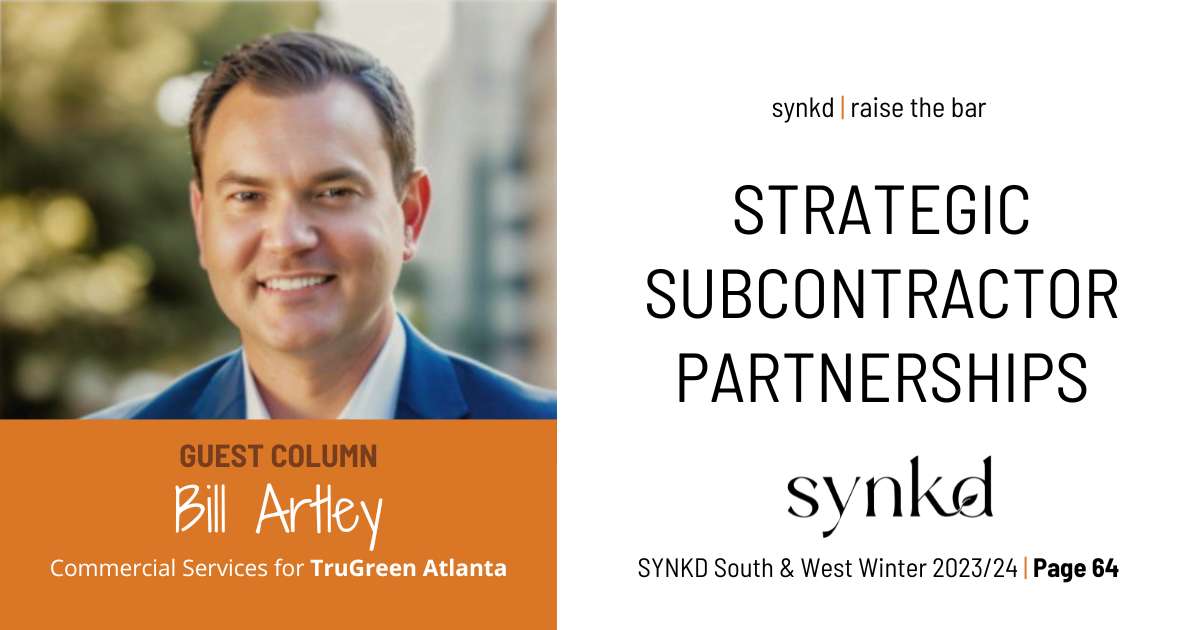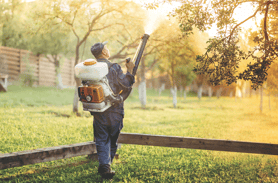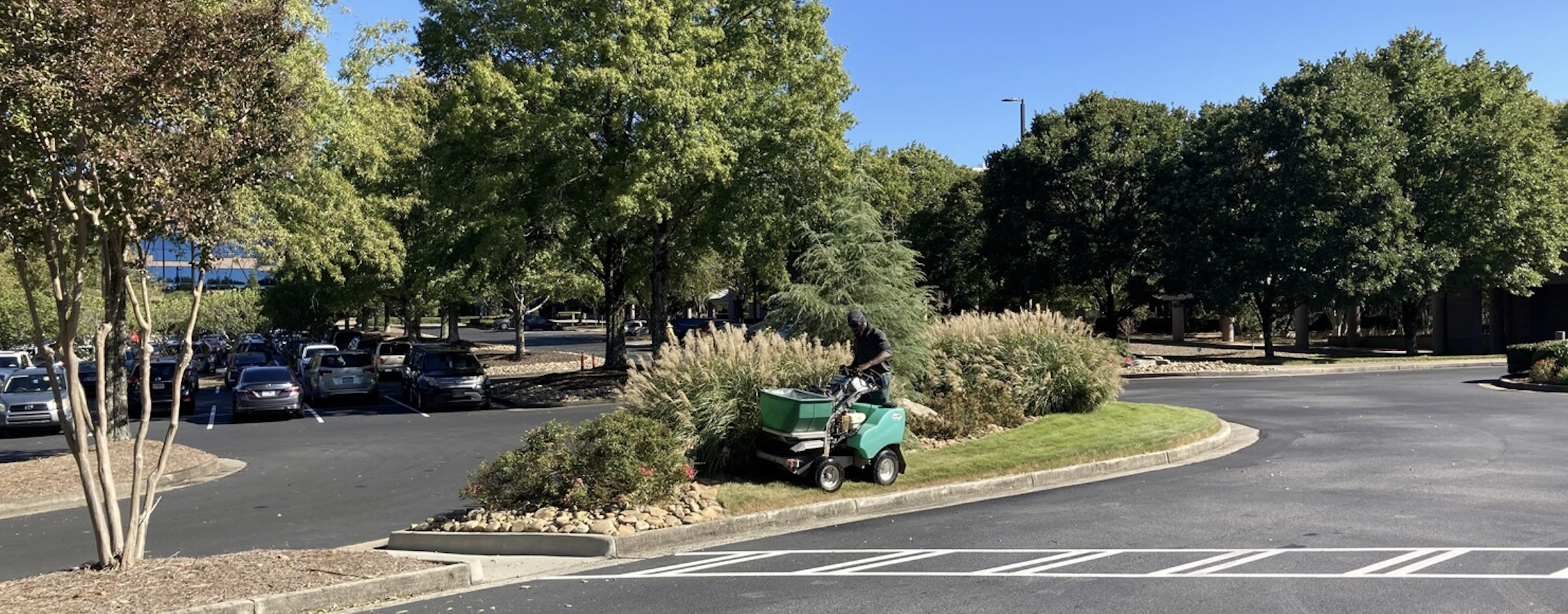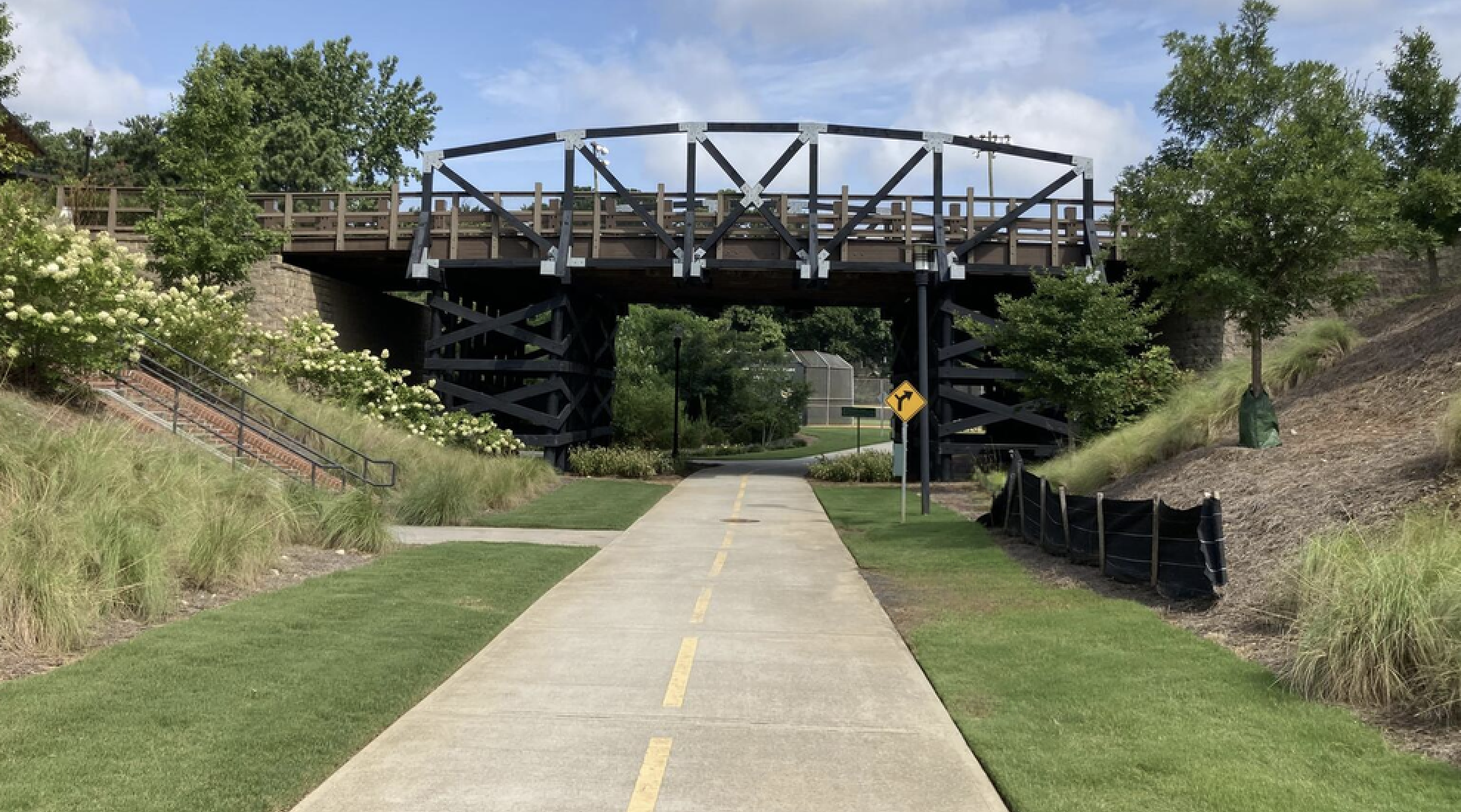Company Profile: Modern Environment
Modern Evironment's Jake Wood Shares How the Company's Full Service Offerings is a Recipe for Success

Enhance Your Own Company’s Services with Partnerships
In the landscape and grounds maintenance industry, businesses often face challenges when it comes to expanding their service offerings. This article discusses the benefits of partnering with specialty subcontractors in outdoor services, specifically focusing on turf, pest, tree and shrub treatment in commercial exterior maintenance. While the context primarily revolves around lawn and landscape care, the principles discussed can apply to various B2B-focused contractor services. The objective is to explore how subcontractors can help businesses overcome limitations, expand their scope and seize growth opportunities.
 The Need for Subcontractors
The Need for Subcontractors
Navigating the field of facility maintenance in the environmental services sector often involves reviewing Requests for Proposals (RFPs) and project scopes that may exceed a company’s in-house capabilities. In such cases, partnering with subcontractors can be a strategic move. Subcontractors, often supporting a primary or general contractor holding the primary contract, provide businesses with the opportunity to expand their services without the burden of in-house management, licensing, equipment and qualifications. However, this approach is most suitable when self-performance is not mandated.
Benefits of Subcontracting
Engaging licensed subcontractors for specialized services like pesticide application and turf treatment allows businesses to compete for higher-value commercial contracts that were previously out of reach due to a lack of licensing or internal capabilities. This expansion opens doors to new business development opportunities and leads. Subcontractors often have their marketing and business development infrastructure, generating engagements that can lead to full-service maintenance contracts.
"These subcontractor relationships
can provide direct introductions to decision-makers, facilitating the growth of a business’s commercial client portfolio."
Selecting the Right Partner
The process of onboarding subcontractors begins with a thorough screening and evaluation process. It is essential to ensure that the subcontractor is properly licensed in the relevant state. Additionally, researching their reputation through platforms like the Better Business Bureau, Google Reviews and Yelp can provide valuable insights into their professionalism and performance history. Seeking referrals and references from past business connections is also crucial.
Crafting a Comprehensive Contract
A well-structured contract is at the core of a productive subcontractor partnership. The contract should eliminate any potential for ambiguity and precisely define the scope of the partnership, communication methods, performance expectations, products and programs, service timelines, invoicing protocols, consequences for substandard results, payment specifics and grounds for potential termination. Seeking legal counsel to ensure the enforceability of the contract and distinguish subcontractors from “double prime” providers is advisable.
 TruGreen Commercial Atlanta Technician on TurfCo Machine Treating Zoysia Parking Lot Islands
TruGreen Commercial Atlanta Technician on TurfCo Machine Treating Zoysia Parking Lot Islands
Customer Relationships & Non-Compete Agreements
Another critical aspect of subcontractor relationships is clarifying ownership of end customer relationships. It’s important to establish up-front expectations regarding allowable engagement and disclosures, such as pricing and business relationships. Many subcontractor agreements include non-compete or non-solicitation clauses, ensuring that subcontractors do not solicit customers, employees or trade partners that could negatively affect the primary contractor’s business. This prevents subcontractors from establishing direct relationships with end customers, bypassing the established hierarchy.
Navigating Payment & Penalties
Timely payments are vital for successful subcontractor collaborations. Transparent payment schedules and penalties for delays or incomplete services should be clearly outlined in the contract to minimize potential disputes. Both parties should thoroughly review and understand penalty clauses to ensure mutual compliance.
Conclusion
Harnessing subcontractors for specialized components in facility and grounds maintenance contracts is a strategic endeavor that, when executed properly, can yield substantial rewards while minimizing risks. By enlisting conscientious and dedicated providers, creating comprehensive and transparent agreements and communicating expectations clearly, businesses can cultivate trusted subcontractor partners that enhance their commercial service capabilities. The key to success lies in providing support and clarity throughout the subcontracting process, ultimately propelling businesses toward responsible commercial expansion.
 City of Chamblee Rail Trail Sidewalk Bridge
City of Chamblee Rail Trail Sidewalk Bridge
Bill Artley, Commercial Services for TruGreen Atlanta
Phone: (678) 264–6400
Email: bill@trugreenmail.com

Modern Evironment's Jake Wood Shares How the Company's Full Service Offerings is a Recipe for Success

ROSWELL, Georgia—June 4, 2024—(BUSINESS WIRE)—SiteOne® Landscape Supply, Inc. (NYSE: SITE) announced today its acquisition of AC Florida Pavers, LLC...